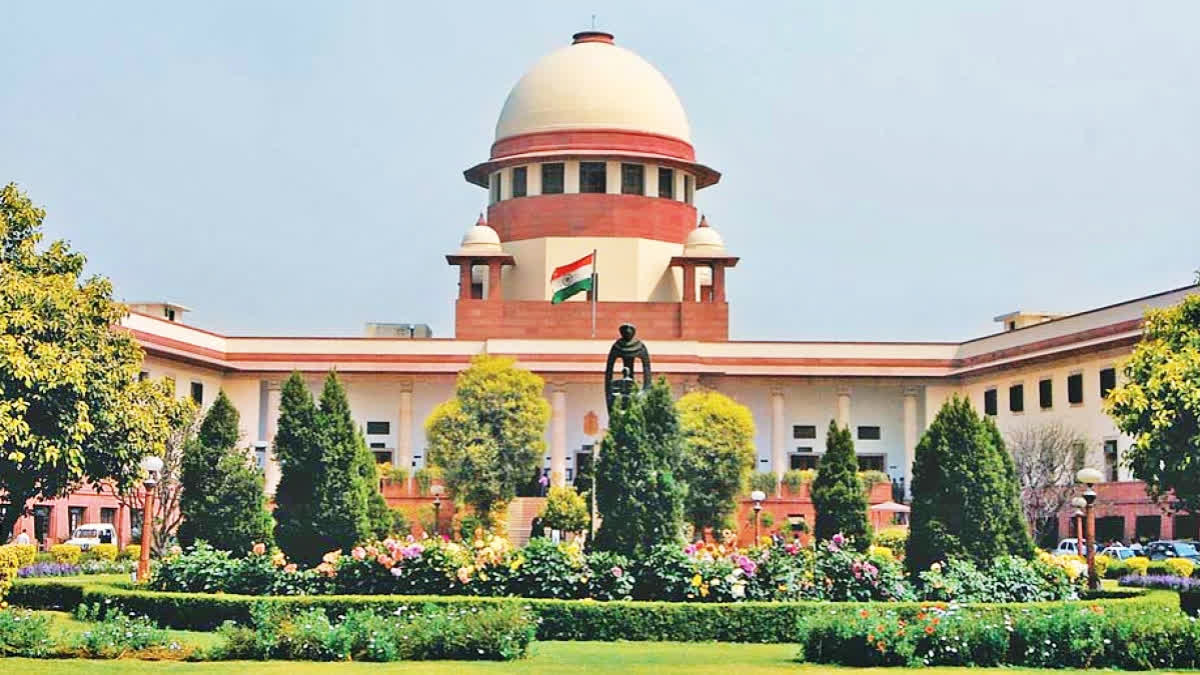New Delhi: The Union of India has opposed the petitions seeking legal recognition for same-sex marriage in India, filing a second counter affidavit in the Supreme Court. The counter affidavit has reiterated that marriage is "an exclusively heterogenous institution" and that those seeking marriage equality in India merely represent "urban elitist views for the purpose of social acceptance". The Centre has asked for the Apex Court to dismiss the batch of petitions on grounds of maintainability.
The Centre argues that marriage is a socio-legal institution that can only be created, recognized, conferred with legal sanctity, and regulated by the competent legislature through an Act under Article 246 of the Constitution of India. The Centre has stated that the courts cannot create or recognize marriage through judicial interpretation or striking down or reading down the existing legislative framework for marriages.
Citing an order of the Supreme Court in Ashwini Kumar Upadhyay v. Union of India, where that the court refrained from framing "gender-neutral and religion-neutral laws" because fell within the legislative domain, the centre said The Centre further argues that even in countries where same-sex marriage has been recognized, the vast majority of countries have done so through the legislative route.
Calling marriage an "exclusively heterogenous institution," the Centre has again opposed granting legal sanction to same-sex marriage, stating that the question of considering it equal to the existing concept of marriage "seriously affects the interests of every citizen".
The Centre, in its submission to the top court, has referred to the petitions seeking legal recognition for same-sex marriage as "mere urban elitist views for the purpose of social acceptance". It has stated that the Parliament will have to take into account "broader views and voices of all rural, semi-rural and urban populations, views of religious denominations keeping in mind personal laws as well, and customs governing the field of marriage together with its inevitable cascading effects on several other statutes". The Centre argues that the creation or recognition of a new social institution altogether "cannot be claimed as a matter of right/choice, much less a fundamental right".
A five-judge Constitution bench of the Supreme Court comprising Chief Justice of India DY Chandrachud, and Justices SK Kaul, Ravindra Bhat, Hima Kohli, and PS Narasimha, has already been framed and they hear a clutch of petitions seeking legal recognition for same-sex marriages on Tuesday.
"It's purely a matter of legislative policy under Entry 5 of List III of Schedule VII of the Constitution, which ought to be determined by the appropriate Legislature only," the Centre emphasized.
The Centre has argued that the representatives of the people are the "appropriate democratic institution" to decide which social relationships will be legally recognized, keeping in mind "the sanctity attached to the institution of marriage in the country, the societal ethos, cherished values in the concept of family, and other such relevant considerations". It has also stated that "the petitions which merely reflect urban elitist views cannot be compared with the appropriate legislature, which reflects the views and voices of a far wider spectrum and expands across the country".



